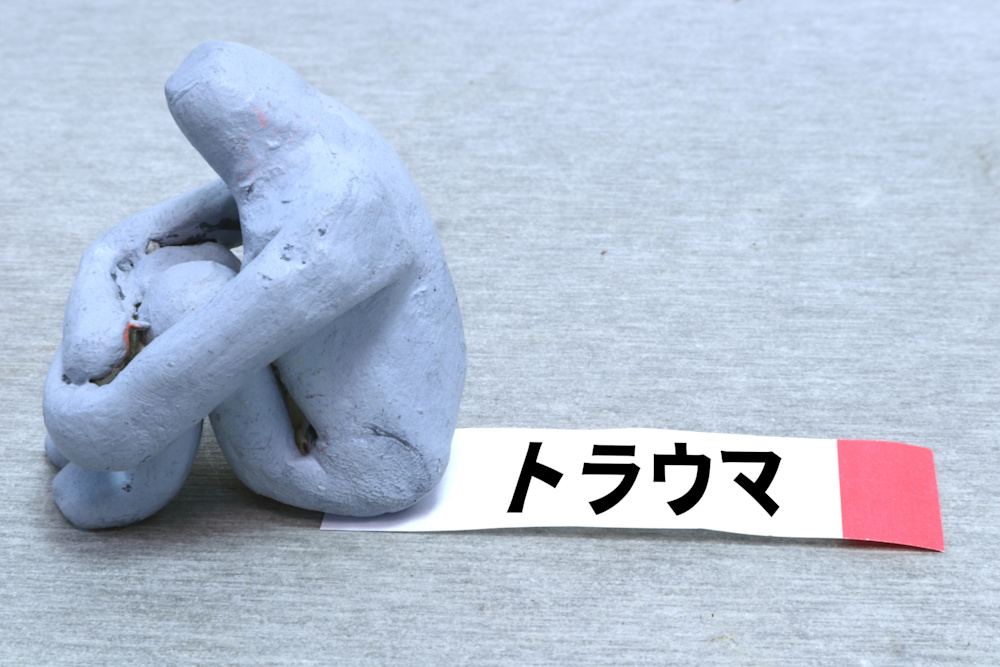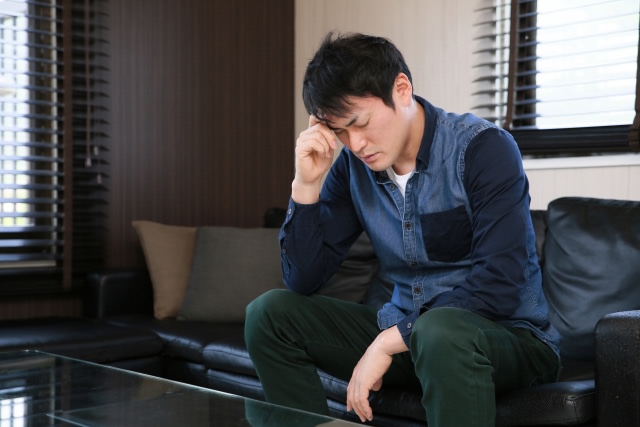Updated October 21, 2025
Mental Health in Japan: Our Tips + How to Find an English-Speaking Therapist
Living in a big city like Tokyo can be stressful.
On top of a busy work schedule, many expats face cultural adjustments and language barriers and deal with homesickness. So, when mental health challenges arise, struggling to explain your feelings in broken Japanese can only make things worse.
The good news is that Tokyo has plenty of excellent English-speaking psychiatric and psychological services for the international community.
In this detailed guide, we’ll cover everything you need to know about finding English speaking psychiatrist in Tokyo and navigating Japan's strict medication laws.
Let’s help you take back control of your mental health!
In this article: 📝
Types of Care You Can Get from a Japanese Psychiatrist in Tokyo
Much like anywhere else, psychiatrists in Japan are trained medical doctors who handle the full spectrum of mental health conditions.
Psychiatrist vs. Therapist: What's the Difference?
Psychiatrists are medical doctors who diagnose, prescribe medications, and provide therapy for depression, anxiety, bipolar disorder, ADHD, OCD, autism spectrum disorders, eating disorders, and psychotic conditions.
Psychiatrists work in various settings, including university hospitals, general hospitals with psychiatric departments, private psychiatric clinics, and specialized mental health facilities. Many are affiliated with major medical institutions but also maintain private practices.
Therapists or counselors, on the other hand, focus on talk therapy and behavioral strategies. They can’t prescribe medication, but can be excellent for relationship issues, stress management, and trauma processing.
Most therapists work in private practice and counseling centers, but some also work in clinics as part of multidisciplinary teams.
How Japanese Psychiatric Care Differs from the US
Japanese psychiatry focuses on building longer-term therapeutic relationships and conducting thorough consultations. They take mental health, like all health matters, very seriously.
A big difference is that doctors here take a conservative approach to medication, starting with lower doses and making gradual adjustments.
Another notable difference is that Electroconvulsive therapy (ECT) is still available in Japan for severe depression and other treatment-resistant conditions. It's administered with modern safety protocols at certified facilities, though it's less common now than in previous decades.
Japanese psychiatrists also incorporate lifestyle factors more heavily into treatment plans, considering seasonal changes, work-life balance, and social relationships as integral parts of mental health care.
Medications That Are Allowed and Not Allowed in Japan
Japan has some of the world's strictest drug import laws. Many common medications are heavily controlled or completely banned, and "I didn't know" sadly isn't considered a valid defense.
The Big Problem: ADHD Medications
Popular ADHD medications like Adderall and Dexedrine contain amphetamines, which are completely prohibited in Japan. Getting caught with these substances, even with a valid prescription from your home country, can result in arrest and even deportation.
If you take ADHD medication, you must work with a Japanese psychiatrist to find alternatives.
Some medications like Concerta (methylphenidate) are available in Japan, but require special import procedures through the Narcotics Control Department. If it’s the only medication that works for you, it’s worth a try.
Import Rules for Psychiatric Medications
Japan's Narcotics and Psychotropics Control Law establishes the controlled substance categories as narcotics, psychotropics, stimulants, and stimulant raw materials.
If you’re prescribed a legal psychiatric medication that falls under one of these categories, you can generally bring up to a one-month supply without special permission, but more than 1 month requires an import permission.
To get this permission, you must apply to the Ministry of Health, Labour and Welfare's Narcotics Control Department before traveling. The following is required:
Medical certificate: Request a detailed letter from your prescribing doctor explaining your condition, why the medication is necessary, and the prescribed dosage.
Original packaging and medicine-related documents: Take a photo of the medicine’s original packaging and any relevant documents about the medicine, usually included in the original packaging.
Keep in mind that you should apply at least 2 weeks before you travel.

Planning For a Smooth Transition
Before moving to Japan, you can ease your transition by following the steps below:
Research Japanese alternatives to your current medications.
Get your medical records translated.
Consult with both your current psychiatrist and Japanese mental health professionals.
Apply for import permissions well in advance.
For the most up-to-date and accurate medication information, check the Ministry of Health, Labour and Welfare website, or contact the Narcotics Control Department’s Application Guidance page.
English-Speaking Psychiatrist Tokyo: Our Picks
Before we get to our picks for English speaking therapist in Tokyo, let’s first take a look at some premium psychiatry clinics in the city.
Tokyo Mental Health (American Clinic Tokyo)
Address: 3rd Floor Niikura Building, 1-7-4 Akasaka, Minato-ku, Tokyo 107-0052
Contact: 03-6441-0969
Specializations: Depression, anxiety disorders, bipolar disorder, ADHD, psychiatric assessment and treatment
Led by Dr. Andrew Kissane, a UK-licensed psychiatrist with a Japanese medical license specifically for treating foreign nationals, Tokyo Mental Health is the gold standard for English-speaking psychiatric care in Tokyo.
The clinic offers comprehensive psychiatric assessment and treatment using Western approaches that focus on patient autonomy and collaborative decision-making.
Please note that this clinic does not accept Japanese National Health Insurance but provides culturally-sensitive, premium care services that justify the investment.
Roppongi Clinic
Address: 〒106-0032 Tokyo, Minato City, Roppongi, 5 Chome−1−4 Rokuwa Building, 5F
Contact: Online booking system available
Specializations: Depression, anxiety, adjustment disorders, sleep disorders, ADHD, stress, burnout, PTSD, addiction
The multilingual Roppongi Clinic stands out for its accessibility and affordability, as it’s open 7 days a week with same-day booking often available. Located just 1 minute from Roppongi Station Exit 3, they serve a diverse international community in English, Japanese, Korean, Spanish, Portuguese, Tagalog and Thai.
The clinic accepts Japanese National Health Insurance for psychiatric consultations.
In addition to medication prescription and management, other services include individual therapy, couples counseling, and specialized treatments like art and movement therapy. Medical certificates are also issued for work or school absences.
1st STEP Kokoro no Clinic
Address: Room 205, Rosa Bianca 3-42-11, Jingumae, Shibuya-ku, Tokyo, 150-0001
Contact: Online consultation forms available
Specializations: Child and adolescent psychiatry, multicultural support, developmental disorders, ADHD, autism spectrum disorders
An excellent choice for families with children, 1st STEP Kokoro no Clinic has English-speaking child psychiatrists and clinical psychologists who understand the challenges of raising children in a foreign country.
Located in the Shibuya/Yoyogi area, they provide services in English, Japanese, and Mandarin. The clinic accepts Japanese Medical Insurance for psychiatric services and offers comprehensive services, including psychiatric treatment, psychological assessment, counseling, and parent support.
This clinic also works closely with international schools and has established protocols for developmental issues and emotional difficulties in children.
Stress Care Tokyo Ueno Ekimae Clinic
Address: 7-7-7 Ueno, Taito-ku, Tokyo Waseda Building 6th floor
Contact: 03-3842-7730
Specializations: Adolescent psychiatry (ages 13-22), developmental issues, identity challenges
Stress Care Tokyo Ueno Ekimae Clinic is a specialized clinic that focuses exclusively on adolescents and young adults, making it an excellent resource for families with teenagers.
They provide English-speaking psychiatric services and psychotherapy for middle school and high school students dealing with school refusal, withdrawal, developmental challenges, and identity issues.
The clinic is located near the Iriya Exit of JR Ueno Station and accepts Japanese health insurance. Please note that it doesn’t treat adults except for WAIS-IV intelligence testing.
Roppongi Psychiatry
Address: 7-14-8 Roppongi, Minato-ku, Arts Shop Building 6F
Contact: 03-5770-6585
Specializations: Depression, anxiety disorders
Roppongi Internal Medicine and Psychiatry Clinic is a dedicated English-speaking clinic that focuses on providing psychiatric care with a deep understanding of expat mental health challenges.
The clinic offers phone consultations and is known to specialize in anxiety disorders and depression specifically. The clinic also states that patients with deeper issues, such as hallucinations, can call for English-speaking assistance.
English-Speaking Therapist in Tokyo: Therapy and Counseling
In addition to psychiatric help, plenty of English-speaking therapy and counselling services are available in Tokyo. Here are some of the best and most accessible ones.

TELL Counseling
Address: Wesley Center 2F, 6-10-11 Minami-Aoyama, Minato-ku, Tokyo 107-0062
Contact: 03-4550-1146
Specializations: Individual therapy, couples counseling, family therapy, child assessment
Serving the international community since 1973, TELL is Tokyo's most established mental health organization. They accept Tricare and Cigna International insurance and offer sliding scale fees based on income for qualifying clients.
All therapists here are licensed and receive ongoing supervision. They offer both in-person and online mental health services in English, Japanese, Cantonese, and Urdu.
TELL also operates the TELL Lifeline (0800-300-8355), a free crisis hotline available 9 AM-11 PM Monday to Thursday and 9 AM-2 AM Friday to Sunday.
Tokyo Meguro Counseling Center
Address: Two locations in Shibuya and Meguro
Contact: 03-3716-6624
Specializations: Individual counseling, couples therapy, cultural adjustment support, child and adolescent counseling
Tokyo Meguro Counseling Center specializes in counseling for the international community, providing services both in English and Japanese.
The clinic understands expat-specific challenges that come from cultural adjustment, relationship issues, and general mental health concerns related to living abroad. The center focuses on helping clients navigate the unique stresses of international living while maintaining and building relationships in a foreign culture.
O'Sullivan Counseling
Address: Online services
Contact: Available through the website
Specializations: Social anxiety counseling, online therapy
O'Sullivan Counseling offers online therapy for social anxiety disorders, making services accessible throughout Japan via teletherapy. The online format allows for flexible scheduling and eliminates geographical constraints, making it ideal for busy professionals.
This service is particularly valuable for those dealing with anxiety related to cultural adjustment, language barriers, and social situations in a foreign country.
BONDS Tokyo Counseling Services
Address: Ma Maison Daizawa 202, 2-30-21 Daizawa, Setagaya-ku, 155-0032
Contact: 03-5431-3096
Specializations: Individual counseling, couples therapy, relationship support
BONDS Tokyo Counseling Services offers comprehensive counseling services in English and Japanese.
Only a 5-minute walk away from Shimokitazawa Station, they provide individual counseling, couples therapy, and specialized support for various mental health conditions with emphasis on cross-cultural understanding and relationship dynamics.
International Mental Health Professionals Japan (IMHPJ)
Address: Online platform
Contact: Through the website
Specializations: This is a network directory of mental health professionals nationwide
The IMHPJ is an invaluable online resource that provides a searchable database of mental health professionals throughout Japan, so it’s a great resource regardless of where you live.
Users can filter therapists by location, language, specialty, and treatment approach. The platform covers multiple languages and includes professionals nationwide, allowing expats to find care outside Tokyo.
Yorisoi Hotline
Address: Phone-based service
Contact: 0120-279-338 (Press 2 for English)
Specializations: Crisis support, free telephone consultations
Yorisoi Hotline is a government-subsidized crisis support provided by Japan's Ministry of Health, Labor and Welfare.
This service offers free mental health support in English, serving as a great first resource for crises or when you’re unsure where to start seeking help. This number is available for immediate support and guidance, so it’s good to keep it in your contacts.
Therapy Garden
Address: Online service
Contact: Available through the website
Specializations: Expat-focused therapy, cross-cultural counseling, adjustment issues
Therapy Garden is led by therapist Diya John. The clinic focuses on making evidence-based mental health care accessible for expatriates living in Japan.
The therapist understands the unique challenges of living abroad, cross-cultural relationships, and adjustment issues, and offers one-on-one counseling at ¥14,000 per session with a free 50-minute initial consultation.
What’s great about this clinic is that they are willing to accommodate different financial situations, just make sure to ask.
Scott Smith LCSW Online Psychotherapy
Address: Online services
Contact: Available through the website
Specializations: Online psychotherapy, clinical social work
Scott Smith LCSW is an online psychotherapy service that offers online talk therapy from a licensed clinical social worker with experience treating international clients.
With flexible scheduling and professional therapeutic support through a secure online platform, the service makes mental health care accessible to anyone in Japan.

How Much Does Therapy Cost in Japan?
Mental health care in Japan isn't cheap. Here’s a breakdown of the costs so you have an idea of what to expect.
Therapy Session Costs
Private therapy in Tokyo ranges from ¥11,000-25,000 per session (roughly $75-170 USD). Here’s our estimations:
Basic counseling: ¥11,000-15,000
Specialized therapy: ¥15,000-20,000
Premium services: ¥20,000-25,000
Couples/family therapy: ¥25,000-33,000
Psychiatric Consultation Costs
Japanese national health insurance partially covers psychiatric consultations, diagnoses, and medication treatments.
With Japanese Health Insurance: ¥3,000-6,000 per visit (70% covered)
Without insurance: ¥15,000-30,000 initial consultation, ¥8,000-15,000 for follow-ups
Insurance Coverage Reality Check
Here's what many expats don't realize: Japanese National Health Insurance does NOT cover psychotherapy or counseling. It only covers psychiatric consultations for diagnosis and medication management, and that’s only 70%.
Private international insurance may help, but policies vary widely, so do your research well. Before starting treatment:
Contact your insurance provider about coverage
Ask if you need referrals
Ask if you have to pay upfront and claim reimbursement
Learn what documentation they require
Cost-Saving Options for English Speaking Therapy Japan
Therapy should be for everyone, but the costs stop many of us from seeking the help we need. To make it more affordable, consider one or more of the following options:
Employee benefit programs: Check if your company provides mental health employee benefits
Group therapy: This can be way more affordable than individual sessions
Crisis services: Make use of free hotlines and emergency support lines
Final Word on English Speaking Psychiatrist Tokyo
Before we go, be sure to save these numbers for mental health crises:
TELL Lifeline: 0800-300-8355 (toll-free)
Yorisoi Hotline: 0120-279-338 (press 2 for English counselling in Japan)
Emergency: 110 (police) or 119 (medical emergency)
Living in Tokyo brings unique stresses like cultural adjustment, language barriers, work pressure, and distance from your precious home support systems.
So, remember that seeking mental health care is normal and healthy. In a demanding city like Tokyo, professional support can help you switch from survival mode to enjoying life again.
For more healthcare resources, check out our guides on getting medical care in Japan and understanding Japan's healthcare system. If you need other medical services, our English-speaking hospitals in Tokyo guide covers even more healthcare options.
Get Job Alerts
Sign up for our newsletter to get hand-picked tech jobs in Japan – straight to your inbox.









